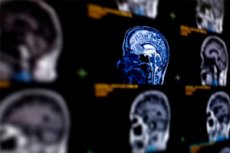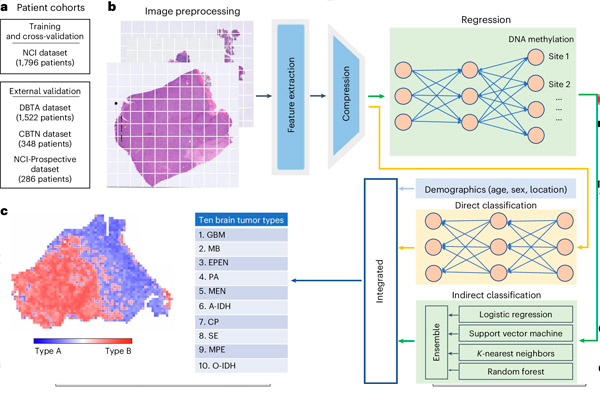Scientists have developed artificial intelligence to classify brain tumors
最近審查:14.06.2024

A new artificial intelligence tool to classify brain tumors faster and more accurately has been developed by researchers at the Australian National University (ANU).
According to Dr. Dan-Thai Hoang, accuracy in diagnosing and classifying tumors is critical to effectively treating patients.
“The current gold standard for identifying different types of brain tumors is DNA methylation-based profiling,” said Dr. Hoang.
“DNA methylation acts as a switch to control gene activity and determine which genes are turned on or off.
“But the time required to conduct this kind of testing can be a significant disadvantage, often requiring weeks or more when patients may need to make rapid decisions about therapy.

Overview of datasets and computational workflow. Source: Nature Medicine (2024). DOI: 10.1038/s41591-024-02995-8
“In addition, such tests are not available in almost all hospitals in the world.”
To address these challenges, researchers from ANU, in collaboration with experts from the National Cancer Institute in the US, have developed DEPLOY, a way to predict DNA methylation and then classify brain tumors into 10 major subtypes.
DEPLOY uses microscopic images of the patient's tissue, called histopathological images.
The model was trained and tested on large data sets of approximately 4,000 patients from the United States and Europe. published in the journal Nature Medicine.
“Surprisingly, DEPLOY achieved an unprecedented 95% accuracy,” said Dr. Hoang.
“Additionally, when analyzing a subset of 309 particularly difficult-to-classify samples, DEPLOY was able to provide a diagnosis that was more clinically meaningful than that originally provided by pathologists.
“This shows the potential role of DEPLOY in the future as an additional tool, complementing the pathologist's initial diagnosis or even necessitating re-evaluation in case of discrepancies.”
Researchers believe DEPLOY could eventually be used to classify other types of cancer.
Results of the study were published in the journal Nature Medicine.

